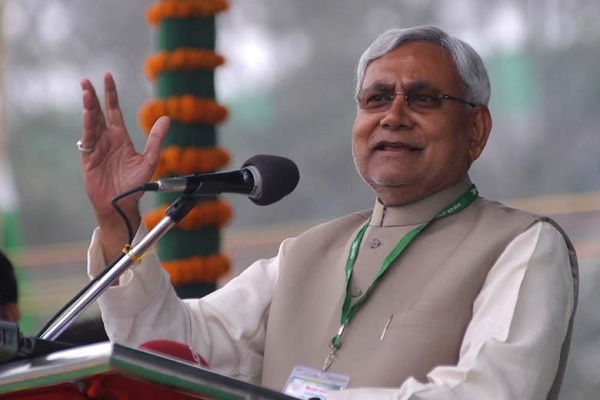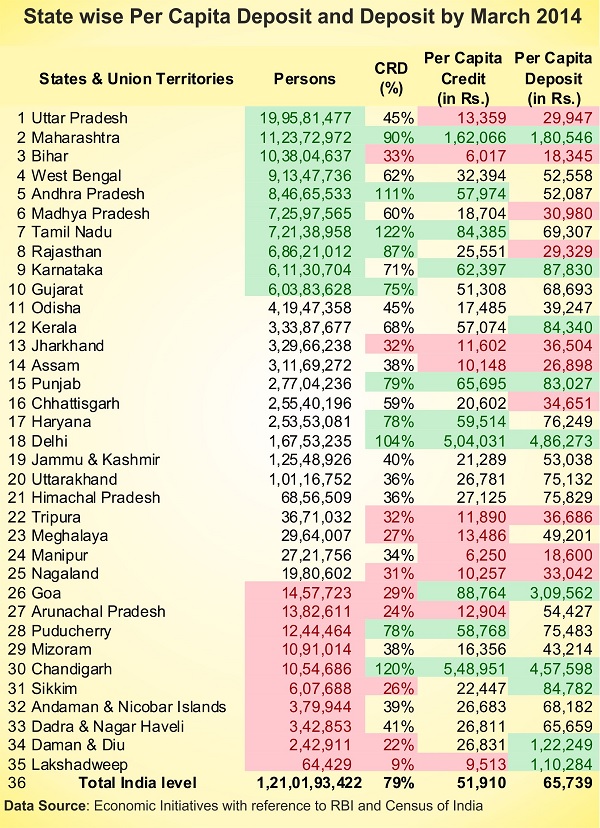
by admin | May 25, 2021 | Opinions, Politics
 By Amit Kapoor & Manisha Kapoor,
By Amit Kapoor & Manisha Kapoor,
The results of the much-awaited state elections are finally out. By all accounts, it was unexpected that the Bharatiya Janata Party (BJP) would be voted out of power in all the three Hindi heartland states. What makes the outcome all the more surprising is that the party has held power for a decade-and-a-half in two of the three states.
The party’s performance makes two questions extremely pertinent. First, do the results serve as a good predictor of the 2019 general elections? And second, what can the BJP-led National Democratic Alliance (NDA) and the Congress-led United Progressive Alliance (UPA) take away from these results?
Past trends indicate that the results of assembly elections of some states are not reflective of the mood of the voters across the country for the subsequent general elections.
In the 2004 general elections, the Congress party went on to become the majority party, despite losing Rajasthan, Chhattisgarh and Madhya Pradesh to the BJP in 2003. Similarly, in 2008, the Congress lost Madhya Pradesh and Chhattisgarh to the BJP, but went on to win the general elections in 2009.
The extrapolation of sentiments from state assembly to general elections does not work for two reasons. First, in the latest state assembly election, 14.86 crore citizens went to vote across five states. Equating those voices with those of 85 crore voters across India fails to take into account the fact that the aspirations of voters across 543 constituencies differ quite significantly.
Second, different dynamics are at work during assembly and general elections. Regional issues play a key role in state elections. In the state elections of northern states, the rural section of the society usually plays a decisive role as their economies are vastly agrarian. In the recent elections, the spiking costs of fertilisers, clubbed with declining agricultural commodity prices worked against the incumbent party. On the other hand, in the general elections, issues apart from farm distress will also come into play to determine voter behaviour.
Another argument that is made to support such electoral extrapolations is that these results can at least serve as bellwethers for the parliamentary seats from these states and not for the entire country as such. However, there are important inferences that can be drawn about the public perception of the ruling and opposition parties from these results.
The wins of the Congress party have brought it back in the reckoning as a major force in national politics. However, given the 30-year-old trend of voting out the incumbent government in assembly elections in Rajasthan, the result should have been more decisive in Congress’s favour. In Madhya Pradesh as well, despite the anti-incumbency feeling against a 15-year-old BJP incumbent, along with other major issues such as farmers’ discontent, the Congress couldn’t significantly impact the BJP’s vote share.
In fact, the BJP has managed to garner a marginally higher vote share of 41 per cent than the Congress in Madhya Pradesh, which ended up with a vote share of 40.9 per cent. Clearly, the Congress party was unable to capitalise the anti-incumbency by providing an alternative narrative. For the ruling party, these results seem to be a wake-up call, but it would be wrong to claim that BJP has lost ground in the Hindi heartland as they have put up a strong fight in both Madhya Pradesh and Rajasthan.
The support garnered by BJP shows that people have not completely rejected the Hindutva ideology and politics. The lack of public decisiveness and higher turnout on both sides may lead to further polarisation and social conflicts in the short run.
The other lesson is that voting behaviour will be highly motivated by prominent social and economic issues: Farm distress in the rural areas, unemployment in urban areas, and corruption. The opposition needs to work towards providing an alternative development model that will solve the citizens’ issues and address the institutional challenges that exist in the Indian system.
One thing that can be concluded from the results is that 2019 is going to be an interesting contest. Before these results, despite demonetisation and implementation of GST, the popular sentiment was still seen with the BJP and it was able to sweep away state elections in major states like Uttar Pradesh and Gujarat. Now, the Congress party seems to be on the path to revival.
The 2019 elections will depend on how the two national parties position themselves politically and whether they are able to provide an alternative narrative to the voters.
(Amit Kapoor is chair, Institute for Competitiveness, India. The views expressed are personal. He can be contacted at amit.kapoor@competitiveness.in and tweets @kautiliya. Manisha Kapoor is senior researcher with Institute for Competitiveness, India)
—IANS

by admin | May 25, 2021 | Banking, Economy, News, Opinions
By Syed Zahid Ahmad for Maeeshat
Considering higher attraction for voters in election manifestos of parties in state elections, it is required that the Election Commission of India should think about framing regulation to prevent political parties offering bribes through election Manifestos. Since political parties are not allowed to distribute materialistic offers to voters before polling, these parties feel privileged to extend attractive offers for public through election manifestos. It is a kind of futuristic bribes offered to voters without any cost to political parties.

If election commission is not serious to take any action over such manifestos where parties announce to distribute laptops, televisions, bicycles or two wheelers etc., its high time the voters should realize that if political parties promise to distribute such attractive materials after winning election; its cost would be ultimately paid by citizens of that state only, and not by the parties.
Voters must realize that the political parties who promise to distribute cycles, bikes, laptops, tablets and televisions after winning election are making fool of the public on the name of eradicating backwardness and poverty. These parties are really not serious about state development; rather going to exploit the citizens through awkward fiscal policies after winning elections. Voters must understand the economics behind such offers. It is needed to understand how the party if wins election fulfill such promises. Will the party pay from its own fund for fulfilling such promises? Obviously No!
Fulfilling such highly attractive promises will ultimately cost the public living in particular state. To fulfill such promise the state Government need fund for purchase of materials. To raise required funds, the Government will obviously increase tax revenues. Increasing tax revenues by state Government will ultimately add inflation and tax burden on public including entrepreneurs and consumers. The ugly tax structure would ultimately go to increase inflation and adverse conditions to attract fresh and abroad investors in the state. The ugly fiscal policy will push the state downward instead of increasing potential for state economic growth.
Now it is upon the public who consider the manifesto attractive to cast votes how they consider the economics of attractive promises in manifestos. If the voters react sensibly to such attractive promises, the parties would obviously become serious in planning for state development.
The statistics available at website of the Reserve bank of India reflects financial deprivation of Bihar as one of the reason for Bihar’s under development. Bihar being third top populated state in India after Utter Pradesh and Maharashtra deserves fair attention for inclusive growth of India. Ignoring Bihar would always led India fail in achieving the target of better growth rate. Considerably Bihar shares as much as 9% of Indian Population, thus deserves better treatment by sincere planners for the nation’s development.
Considering Bihar election, political parties should raise issue of the lowest per capita credit availed by Bihar. It may be noted that Bihar is getting merely Rs. 6,017 as per capita credit disbursed by Indian banks compared to Rs. 5,48,951 for people of Chandigarh and Rs. 5,04,031 for people living in Delhi. Credit Deposit Ratio for Bihar is merely 33% against national average of 79%.
It might be questioned why Credit Deposit ratio for states like Tamil Nadu, Andhra Pradesh, Chandigarh and Delhi is over 100%? People of Tamil Nadu received 122% credit of Deposits made in Banks whereas people of Bihar get just 33% of their Deposits as credits extended by Indian banks. Why political parties not find any reason for this deficit in finance as reason of Bihar’s backwardness compared to other states like Chadigarh, Delhi, Andhra Pradesh and Maharashtra.
Political parties should sincerely raise the point why the per capita credit availed by Bihar is just Rs. 6,017 compared to national average per capita credit of Rs. 51,910 extended by Indian scheduled commercial banks? Whoever be the economists behind these political parties, can anyone deny that without ensuring adequate supply of finance, we cannot raise Bihar’s growth potentials?
If any party is really serious to help poor people of Bihar, they should really think about promoting micro and smaller enterprises in Bihar. There is desired that political parties may announce launching of Micro Equity Fund for micro and smaller enterprises allowing them feel equality in financial sector compared to corporate who avail equity from stock markets. Such micro equity funds may allow micro and smaller enterprises boost their entrepreneurship; ultimately boosting manufacturing activities in the state.
The people of Bihar should ask the political parties to ensure that they avail what people of Bihar really deserve and the new Government should just keep on facilitating the people of Bihar develop their state.
He can be reached economicinitiatives@gmail.com

 By Amit Kapoor & Manisha Kapoor,
By Amit Kapoor & Manisha Kapoor,

